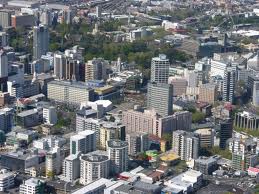More Stories
Wednesday, January 07th 2026
Queenstown not off the radar for first home buyers
First home buyers are not being deterred by Queenstown’s soaring house prices.

Tuesday, December 23rd 2025
Record levels of first home buyers taking out low deposit loans
About half of all first home buyer lending has been done at a less than 20% deposit in recent months.

Thursday, December 04th 2025
Buyers sitting on the sidelines in best time to buy in a decade
Stable house prices, low interest rates and plenty of houses to choose from are still not enticing buyers.

Tuesday, December 02nd 2025
Differing views on 50-year mortgage
US president Donald Trump recently raised the idea of 50 year mortgages; but New Zealand advisers say such long loans won’t take off in New Zealand.

 Search
Search
